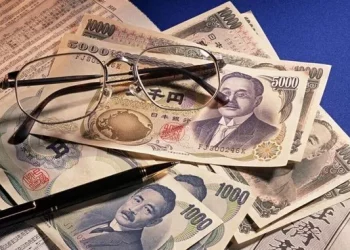The value of a currency, such as the British pound sterling (GBP), is a cornerstone of global financial markets. It affects trade, investment, and the purchasing power of individuals both within and outside the United Kingdom. Understanding who decides the value of the pound is not a straightforward answer; it is the result of a complex interplay between market forces, monetary policy, and geopolitical dynamics. This article unpacks these factors to provide a comprehensive overview of how the value of the pound is determined.
The Basics: Currency Value in a Floating Exchange Rate System
The pound operates under a floating exchange rate system, meaning its value is determined by market forces of supply and demand in the foreign exchange (forex) market. Unlike a fixed exchange rate, where a government pegs the currency to another (such as the US dollar or gold), a floating system is largely decentralized. However, the “floating” nature of the pound does not mean it is immune to influence from monetary authorities or external events.
Under this system, the value of the pound against other currencies, such as the US dollar (GBP/USD) or the euro (GBP/EUR), fluctuates constantly. These fluctuations are driven by two primary factors:
Demand for the Pound: Foreign and domestic investors, traders, and institutions buy pounds for trade, investment, or speculative purposes.
Supply of the Pound: When pounds are sold in exchange for other currencies, the supply increases, exerting downward pressure on its value.
Key Determinants of the Pound’s Value
1. Monetary Policy by the Bank of England
The Bank of England (BoE) plays a pivotal role in influencing the pound’s value through its monetary policy tools, including:
Interest Rates: When the BoE raises interest rates, holding GBP-denominated assets becomes more attractive to investors due to higher returns. This increases demand for the pound, pushing its value upward. Conversely, rate cuts tend to weaken the currency.
Quantitative Easing (QE): When the BoE engages in QE, it increases the money supply by purchasing government or corporate bonds. This can dilute the pound’s value, leading to depreciation.
Forward Guidance: The BoE’s communication regarding future monetary policy can influence market expectations. For instance, if the central bank signals an intention to tighten policy, traders might preemptively buy pounds, causing its value to rise.
2. Economic Indicators
Economic health is a critical determinant of the pound’s value. Key indicators include:
Gross Domestic Product (GDP): Strong economic growth typically supports a stronger pound, as it signals stability and attracts foreign investment.
Inflation Rates: Moderate inflation is seen as a sign of a healthy economy, while excessive inflation can undermine confidence in the currency.
Employment Data: High employment rates often correlate with a stronger currency because they reflect economic resilience.
Trade Balance: A trade surplus (exports > imports) increases demand for the pound, while a deficit has the opposite effect.
3. Geopolitical Events and Sentiment
The pound is sensitive to geopolitical developments, including:
Brexit: The 2016 Brexit referendum significantly impacted the pound’s value, as uncertainty about the UK’s future trade and economic arrangements led to a sharp depreciation.
Political Stability: Periods of political uncertainty, such as elections or policy shifts, can cause fluctuations in the pound. For example, a government perceived as fiscally responsible might boost confidence in the currency.
Global Events: Crises such as wars, pandemics, or financial collapses often lead to volatility in the forex market. Investors might flock to “safe haven” currencies, such as the US dollar, causing the pound to weaken in times of global uncertainty.
4. Market Speculation
Forex traders and investors play a significant role in determining the pound’s value. They analyze macroeconomic trends, political developments, and technical indicators to decide whether to buy or sell pounds.
Carry Trade: In a carry trade strategy, traders borrow in low-interest-rate currencies (e.g., Japanese yen) to invest in higher-yielding assets like GBP. This can increase demand for the pound.
Herd Behavior: Traders often follow market sentiment, amplifying price trends. For example, if a majority believes the pound will strengthen, this collective buying can drive the currency higher.
The Role of Central Banks in Currency Intervention
While the pound operates in a floating exchange rate system, the Bank of England and other central banks can intervene in extreme situations to stabilize the currency. Such interventions include:
Direct Intervention: Central banks may buy or sell pounds in the forex market to influence its value. For instance, in 1992 during “Black Wednesday,” the BoE attempted to defend the pound’s peg within the European Exchange Rate Mechanism (ERM) by purchasing pounds. However, this effort ultimately failed.
Policy Adjustments: Central banks may adjust interest rates or implement unconventional monetary policies to stabilize their currency.
Interventions are rare in modern floating systems and typically reserved for times of severe market dislocation or economic stress.
The Impact of Global Factors
1. US Dollar Strength
As the world’s reserve currency, the US dollar significantly influences the pound’s value. When the dollar strengthens due to higher US interest rates or safe-haven demand, the pound often weakens in relative terms. Conversely, dollar weakness can bolster the pound.
2. Commodity Prices
The UK is not a major commodity exporter, but changes in global commodity prices can still affect the pound indirectly. For example:
Oil Prices: Higher oil prices can lead to higher inflation in the UK, potentially influencing BoE policy and, by extension, the pound’s value.
Gold Prices: Rising gold prices may indicate risk aversion in global markets, which could weaken the pound as investors flock to safer assets.
3. Global Trade and Investment Flows
As a major financial hub, the UK attracts significant foreign investment. Changes in global risk appetite, driven by events like a financial crisis or major geopolitical shifts, can influence capital flows and thereby impact the pound.
Technology and Algorithmic Trading
Technological advancements have made algorithmic trading a dominant force in the forex market. Algorithms execute trades based on pre-programmed criteria, responding to real-time data such as news releases or market movements. While human traders assess the broader implications of events, algorithms often act on microsecond-level opportunities, contributing to intraday volatility in the pound’s value.
The Perception of Value: A Psychological Component
A currency’s value is not just a mathematical equation—it also reflects market psychology. Confidence in the UK economy, governance, and institutions heavily influences the pound’s value. If international markets perceive the UK as stable and prosperous, demand for the pound increases, strengthening its value. On the other hand, crises of confidence can lead to rapid depreciation.
Conclusion
The value of the pound is shaped by an intricate web of factors, with no single entity deciding its worth. Instead, it is a dynamic interplay between market forces, monetary policy, economic indicators, and global events. While the Bank of England and government policies play a crucial role, the ultimate arbiter of the pound’s value is the collective decisions of millions of market participants across the globe.
Understanding these factors is essential for anyone engaging with the forex market, whether as a trader, investor, or policymaker. The pound’s value is more than just a number—it is a barometer of the UK’s economic health, political stability, and position in the global economy. By staying attuned to the forces that drive it, stakeholders can make more informed decisions in an ever-changing financial landscape.
Related Topics:


























